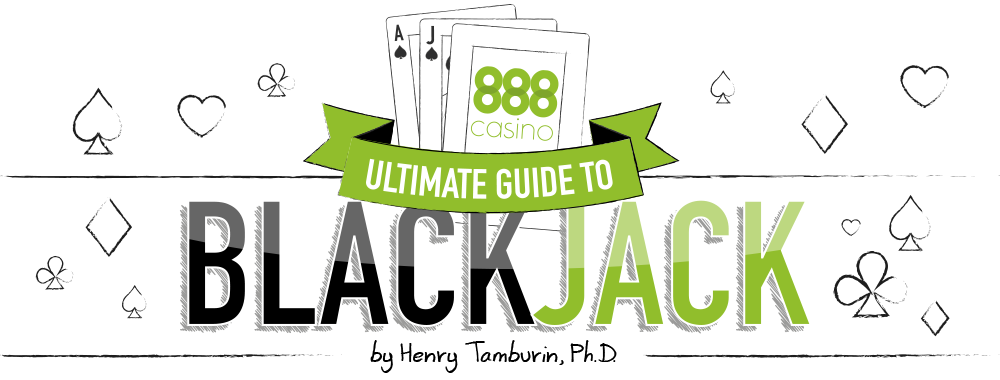
BLACKJACK FREQUENTLY ASKED QUESTIONS

Over the past quarter century, I’ve received many questions from blackjack players. Several of them I’ve already answered in the first eight chapters of this Blackjack guide. What follows are questions on topics that I haven’t addressed in detail thus far.
Note: I haven’t included card counting questions in this FAQ. I’ll answer those in Chapter 10.
When players have a losing session at blackjack, they are quick to put the blame on someone or something. They would never consider that their losses may be due to the fact that they haven't a clue about basic playing strategies or their loss is simply due to the variability that is part of how to play blackjack, the latter means that even the most skillful players will have losing sessions. It just makes more sense to blame that nerd at third base who, allegedly, killed the table with his stupid plays.
If you are serious about wanting to win at blackjack, then the very first thing you absolutely must do is to separate the truth from fiction; otherwise, you will be like most blackjack players, who always have an excuse for their losses.
I could write many pages of blackjack myths that have come to my attention over the past 50 years. Instead, I've selected the most talked about and misunderstood myths about the game, the reason for the myth, and the truth. Are you ready for some debunking?
Note: I’ve covered some of these Blackjack myths in earlier chapters but it doesn't hurt to discuss them again.

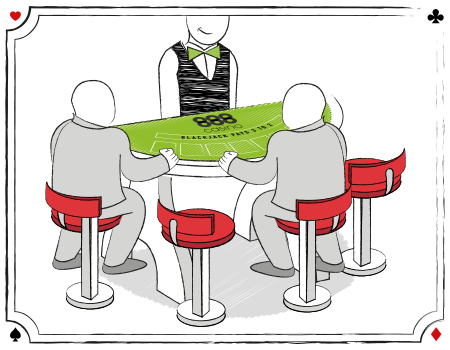
IS IT REQUIRED TO TIP A DEALER?
It’s no secret that dealers depend on tips for their livelihood. Roughly two-thirds of their monthly wage is tips. However, although you are under no obligation to tip when you play, most players do, especially if the dealer has been friendly and helpful, and made their playing experience an enjoyable one. Tipping does have some benefits. By tipping and getting the dealer on your side, she will often give you the benefit of the doubt if her supervisor asks her how much you were betting, resulting in the supervisor’s bumping up the amount of your average bet, giving you a higher rating and more comps. I expect a dealer to smile, be friendly, wish me luck when she gives me chips, and not be indifferent if I ask her a question. If she does, I tip; if not, I don’t.

HOW SHOULD YOU TIP THE DEALER?
There are two common ways that players tip a friendly dealer. First is to simply place a chip on the layout at any time and tell the dealer “this is for you.” The second way is to make a bet for the dealer on your hand by placing the chip(s) you want to bet for her just outside of the betting area. If your hand wins, the dealer will pay off your winning chip(s) and her winning chip(s). After the dealer clears the table, she will pick up the winning chips from the bet you made for her, hopefully thank you for the bet, and place the chips in the toke box, tips are often shared amongst dealers on same shift. If your hand loses, of course the bet you made for her on the hand will be lost, and she receives no tip. The chip you bet for her goes into the casino’s chip tray. However, even if your hand loses, most dealers will appreciate the player’s gesture.
There is a less common but what is considered to be a better way to tip the dealer. Instead of placing the chip(s) you are betting for the dealer outside of your betting spot, place them instead on top of your chip(s) inside the betting spot.
Notice the difference between the two ways of making a tip bet for the dealer. Bets made outside the betting spot are controlled by the dealer while the bets made inside the betting spot are controlled by the player. Therefore, when the chip(s) you wagered for the dealer are outside of your betting spot, the dealer pays herself if the hand wins and keeps the original bet you made for her plus the winning chip(s). If you make the tip bet inside the betting spot and the hand wins, the dealer will pay you on both bets. You then turn around and give the dealer the winning chip(s) for the bet you made for her, but you get to keep the original bet you placed on top of your initial bet.
Betting on top of your chips inside the betting spot saves you 50% compared to betting outside the betting spot. It also gives you the option to let the chip(s) ride for her on the next hand. In fact, I usually let the bet ride until I lose a hand; this often gives you a lot of mileage and the appearance you are frequent tipper from an initial one-chip bet.
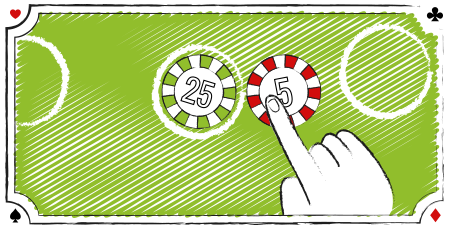
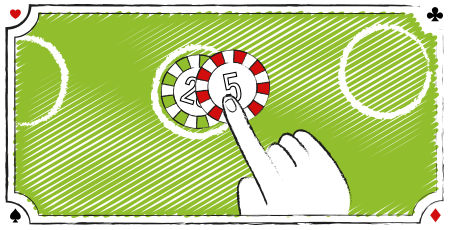

HOW MUCH SHOULD I TIP?
It’s perfectly acceptable to base your tip on how much you are betting. As a rule of thumb, if you are a $5 player, I’d suggest a $1 or $2 tip bet for the dealer. If you are a $25 bettor, making a $5 tip bet would be appropriate. However, I wouldn't recommend over tipping because winning at blackjack is tough enough.
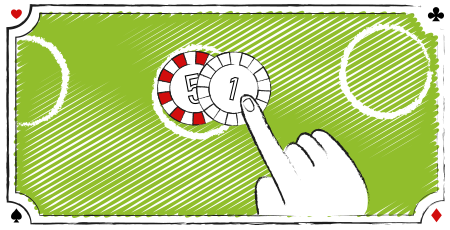

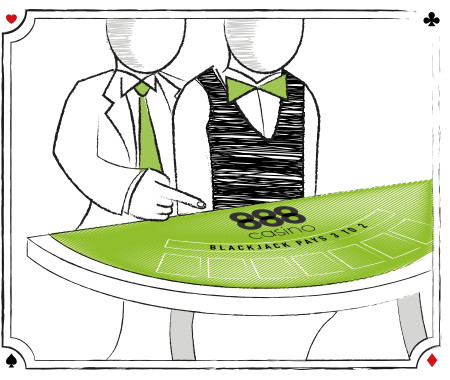
IF A DEALER MAKES A MISTAKE WHILE DEALING THE CARDS, WHAT IS SUPPOSED TO HAPPEN?
Blackjack dealers are human and sometimes they make an honest mistake when dealing. If the dealer errs, she should never correct her mistake; instead, she should immediately notify her supervisor, floor person in the pit that is responsible for that table. It is the floor supervisor’s responsibility to correct dealer mistakes to the satisfaction of all the players. In the event you are not satisfied, tell the supervisor nicely that you would like to speak to the shift boss to discuss what happened and the decision made on the hand.

I PLAY A LOT OF BLACKJACK AND NEVER SEEM TO GET ANY COMPS. WHAT SHOULD I DO?
You should check with a casino host, even before you start playing in any casino, to find out what the play requirements are for specific level of comps. For example, a casino on the Las Vegas Strip that caters to high-end players isn’t going to give many comps (if any) to a $10 bettor. However, a locals casino that caters to average recreational players will more likely reward a $10 bettor.

HOW CAN THE HOUSE EDGE BE LOWER IN A SINGLE-DECK GAME VS. A SIX-DECK GAME WHEN THE PROPORTION OF RANKS OF CARDS IS THE SAME?
All other rules being equal (which they rarely are), the casino edge in blackjack decreases as the number of decks decreases for two main reasons: you will get more blackjacks with fewer decks, and doubling down becomes more advantageous. The reason you get more blackjacks in a single-deck game is that the removal of a single card affects the percentages of the remaining cards to a much greater extent compared to a six-deck game. For example, the chance of getting a blackjack with the order of ace-ten from a freshly shuffled single deck of 52 cards, containing four aces and 16 ten-valued cards (10s, Js, Qs, and Ks) is: Chance that the first card is an ace (4/52) times chance that the second card is a 10 (16/51).

If you multiply 4/52 x 16/51 you get 2.41%, which is the probability that your first card is an ace and the second a ten-valued card. But you could have just as easily drawn a 10 as your first card and an ace as your second card. Therefore, the probability of getting a blackjack in a single deck game is twice 2.41% or 4.82% (actually rounds up to 4.83%). This translates into one blackjack out of every 20.72 hands.
If you do the identical math for a six-deck game (consisting of 24 aces and 96 ten-valued cards), you’ll arrive at a frequency of 4.75%, or one blackjack in every 21.06 hands, meaning you’ll get fewer blackjacks compared to a single-deck game. Additionally, blackjack pushes with the dealer are 22% more likely in a six-deck game compared to a single-deck game, which also reduces your earnings potential. When you double down, in most cases you are hoping to draw a 10-valued card (e.g., doubling a 6-5). In a single-deck game, the chance of drawing the desired 10 is 32.0%, whereas it’s only 30.98% in a six-deck game (roughly 3% less). The reason is the same as it is for the frequency of blackjacks; namely, the effect of removing a single rank in a single-deck game is much more pronounced than it is for a six-deck game.

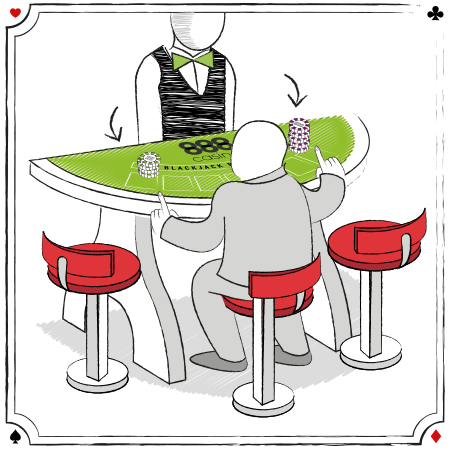
IS THERE ANY ADVANTAGE TO PLAYING MORE THAN ONE SPOT AT BLACKJACK?
You will decrease your variance when you play more than one spot. This assumes that instead of betting, say, $20 on one spot, you bet $10 on each of two spots. Your total risk per round is $20 either way, but your variance, related to the standard deviation, or amount you might win above expectation or lose below expectation over a specific time period, will be lower betting $10 on two spots vs. $20 on one spot. Additionally, for the same bankroll, you will get more play time betting two spots vs. one spot because sometimes you will win or push one hand while the other might lose or push. However, keep in mind that your long-term expected loss will be the same betting $20 on one spot vs. betting $10 on two spots, albeit you lower your variance by betting two spots.

WHEN, IF EVER, SHOULD YOU TIP A CASINO HOST? IF SO, HOW MUCH?
It’s not a requirement to tip your casino host; however, if your host gives you exceptional service and you want to thank him or her for a job well done, then it would be appropriate to reward your host. Most casinos have a policy that forbids hosts from accepting money from customers and gifts are usually restricted to a “nominal” value. The value of the latter differs from one casino to another. Suggestions: If you know your host’s hobby, a gift along those lines would be appropriate. For example, if it’s golf, a set of golf balls would be appropriate. Male hosts wear suits all day so a nice tie would be appreciated. Female hosts enjoy receiving flowers or a gift certificate to an off-site restaurant. Certainly, a prepaid credit card would also be an appropriate gift. For example, recently I’ve given a host a $100 gift card to Home Depot; another, a $100 prepaid Visa card.

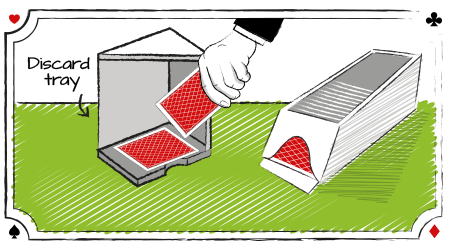
WHY DO DEALERS BURN THE FIRST CARD?
It’s a way for the casinos to show players that there was no hanky-panky involved when the dealer shuffled the cards. Also, the first card after a shuffle is vulnerable to cheating schemes, by a dealer in cahoots with a player, so burning the card lessens the possibility of this happening. If you are not a card counter (you can test your card counting skills here), it makes no difference in the odds of winning if the dealer burns one or more cards from play at the start of a round.

ARE THE RULES THE SAME FOR VIDEO BLACKJACK AS THEY ARE FOR A LIVE TABLE GAME?
The rules on video blackjack games are usually not as good as they are in a live table game. Video blackjack games often pay only even money for a blackjack and don’t allow a player to double down on soft hands. But I have seen a few video blackjack games with comparable rules to a live game; therefore, it’s best to check the rules, especially the pay-off for a blackjack hand, before you play any video blackjack game.

IS IT BETTER TO PLAY AT A FULL TABLE OR ALONE WITH THE DEALER?
If you are a basic strategy player and are not card counting, you are better off playing at a full table of players. The reason is that you will be dealt fewer hands per hour at a full table and this reduces the exposure of your bankroll to the house edge.

IF YOU ARE SUCH A HOT-SHOT BLACKJACK PLAYER, WHY AREN'T YOU PLAYING BLACKJACK AND WINNING MILLIONS OF DOLLARS INSTEAD OF WRITING THIS GUIDE?
I get asked this question (or similar ones) all the time. Actually, I included it here as a teaser for you to read the next Chapter on Card Counting where you’ll find the answer to this question.

KEY TAKEAWAYS:
- Tipping a dealer is not a requirement when you play blackjack.
- The best way to tip a friendly and helpful dealer is to place the chip(s) you are betting for her on top of the chip(s) you bet on your hand, inside the betting spot.
- If a dealer makes a mistake while dealing the cards you should immediately bring it to her attention.
- Dealer mistakes should be corrected by the dealer’s supervisor.
- If you are not satisfied with the way a floor supervisor has corrected a dealer’s mistake, tell the supervisor you wish to speak to the shift boss.
- Ask a casino host what the play requirements are for getting a specific level of comps when you play blackjack.
- One of the reasons that the house edge is lower in a single-deck game is that the removal a single card has a greater effect on the percentages of the remaining cards, resulting in an increase in the number of player blackjack hands compared to the multi-deck game.
- You can lower your variance by betting, say, $10 on each of two hands, instead of betting $20 on one hand.
- Casinos burn the first card after a shuffle to minimize any player cheating if he or she caught a glimpse of the card.
- The rules for video blackjack are often not as good as a live game, especially the payoff for a blackjack hand.
- It’s better for a basic strategy player to play on full tables.



IS EACH STATEMENT TRUE (T) OR FALSE (F)?


1. You should always give the dealer the bonus payoff on a blackjack hand to thank her for giving you the blackjack.

2. You are a $10 bettor. When you buy in at a blackjack table and the dealer gives you your chips, it’s best to ask her immediately to give you five white ($1) chips in exchange for a red ($5) chip because you are planning to tip her.

3. You give a hand signal to the dealer that you want a draw card and she gives the card instead to the player on your left. You should tell the dealer that the card was yours and she should give it to you right now.

4. You should ask the dealer how much you need to bet to get a buffet comp.

5. Assuming the same rules, the house edge is lower in a six-deck game than a double-deck game.

6. The house edge is the same when you bet one spot or more than one spot.

7. It’s OK to give cash to a casino host for a job well done.

8.You should assume all video blackjack games pay 3-2 for a blackjack hand.


ANSWERS

1. False. There is no requirement that you have to tip a dealer and certainly giving her the bonus payout on every blackjack hand would be, in my opinion, over tipping.
2. True. By getting some white chips at the start of your session you are putting the dealer on notice that you may be tipping her if she is friendly and helpful.
3. False. It’s OK to bring the mistake to the dealer’s attention but don’t expect her to correct it. That’s the responsibility of her supervisor.
4. False. That’s not the dealer’s job to know or tell players how much to bet to get a comp. You should ask that question to a casino host.
5. False. The house edge is always lower as the number of decks decreases (assuming the same rules).
6. True. What’s different is the variance, which is lower when you bet two spots of, say, $10 on each spot, as opposed to betting $20 on one spot.
7. False. Most casinos forbid players to give cash to casino hosts.
8. False. Many video blackjack games pay only even money for a blackjack. You should always check the rules to be sure that blackjacks pay 3-2.
9. False. Your hourly expected loss is less when you play at full tables compared to playing alone or with just a few players.
